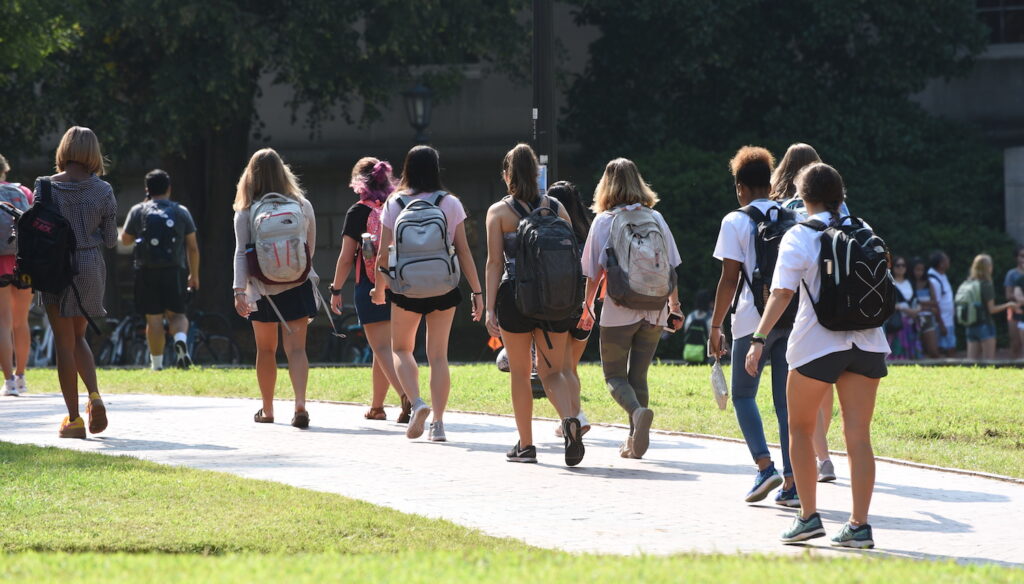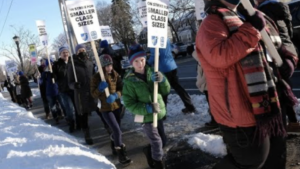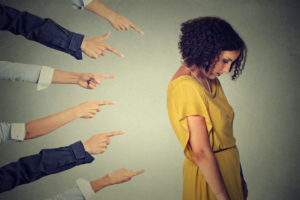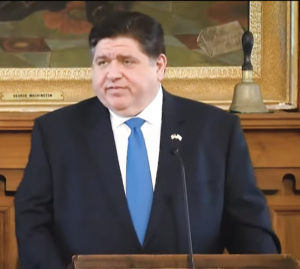Education degrees are less popular than ever before
Education degrees have vastly declined in popularity since 1970, the National Center for Education Statistics revealed, drawing calls for more school choice and less liberal ideology in…

Education degrees have vastly declined in popularity since 1970, the National Center for Education Statistics revealed, drawing calls for more school choice and less liberal ideology in classrooms.
Although the number of total bachelor’s degrees conferred has more than doubled, education degrees have decreased by more than half – from 176,000 50 years ago to a mere 89,000 in 2021.
That means more students are majoring in visual and performing arts (90,000) than in education.
Corey DeAngelis, senior fellow at the American Federation for Children and executive director at Educational Freedom Institute, blamed educational bureaucracy for discouraging new teachers.
“We pour more and more money into the system, and it doesn’t make its way to the teachers in the classroom. Per student, education spending increased by 152% between 1970 and 2019 after adjusting for inflation. Teacher salaries only increased by 8%,” DeAngelis told Fox News.
“Competition in the labor market would also make government school employers think twice about making teachers’ lives miserable if they want to retain talent,” DeAngelis continued. “All five studies I’ve seen on the topic find that school choice competition leads to higher teacher salaries in public schools.”
While the K-12 education landscape isn’t attracting young professionals, part of the problem may be that teacher education programs are becoming divisive and politically charged.
A study of partisanship in various professions revealed that the teaching occupation is almost 80% Democrat.
Greg Forster, a Friedman fellow at EdChoice, suggests education programs are leaving teachers unprepared by focusing on politicized ideology.
“So if education schools aren’t teaching people how to teach, what are they teaching instead?” Forster asked. “Peruse the course catalog of any major education school, or read the Twitter feeds of the professors. You’ll find yourself swimming in an ocean of hard-left ideology: ‘critical theory’ that says there is no truth, only power; ‘intersectionality’ that says you’re not allowed to be right about anything unless you’re right (that is, left) about everything; cheerleading for every fashionable left-leaning cause.”
Researchers from the Wisconsin Institute for Law & Liberty (WILL) also argued the leftward push in K-12 education is really starting with teacher education.
“Wisconsin’s teachers don’t always push a liberal agenda purely of their own volition,” researchers wrote. “The controversial material spilling into schools today is a result of the indoctrination process that begins when teachers are enrolled in universities around the state.”
At one of the 13 public universities that WILL studied, future teachers were required to read books like Pedagogy of the Oppressed and Affirming Diversity: The Sociopolitical Context of Multicultural Education. They also had to read articles about gender ideology, homosexuality, and antiracism.
“This is not to say that college courses shouldn’t expose students to politically controversial topics,” researchers added. “But, far too often, these radical viewpoints are presented to students as the only ones through which to understand the world.”
Another major issue is excessive red tape in teacher licensing.
“What we see policymakers balancing is the need to have a high bar for entry into the profession – to make sure everyone who gets in front of a classroom of students is prepared – with ensuring we have enough teachers and ensuring that there aren’t artificial barriers that are unintentionally keeping really great people out of the classroom,” said Tiffany McDole, an assistant direct at the Education Commission of the States.
But while some states are trying to solve the problem by easing licensing requirements or starting multi-state partnerships, others are weaponizing teaching licensing to weed conservatives out of an already liberal-dominated field.
In February, Minnesota adopted new licensing standards that effectively force teachers to push progressive values and political agendas in the classroom. One teacher accused the state of using “mafia tactics.”



